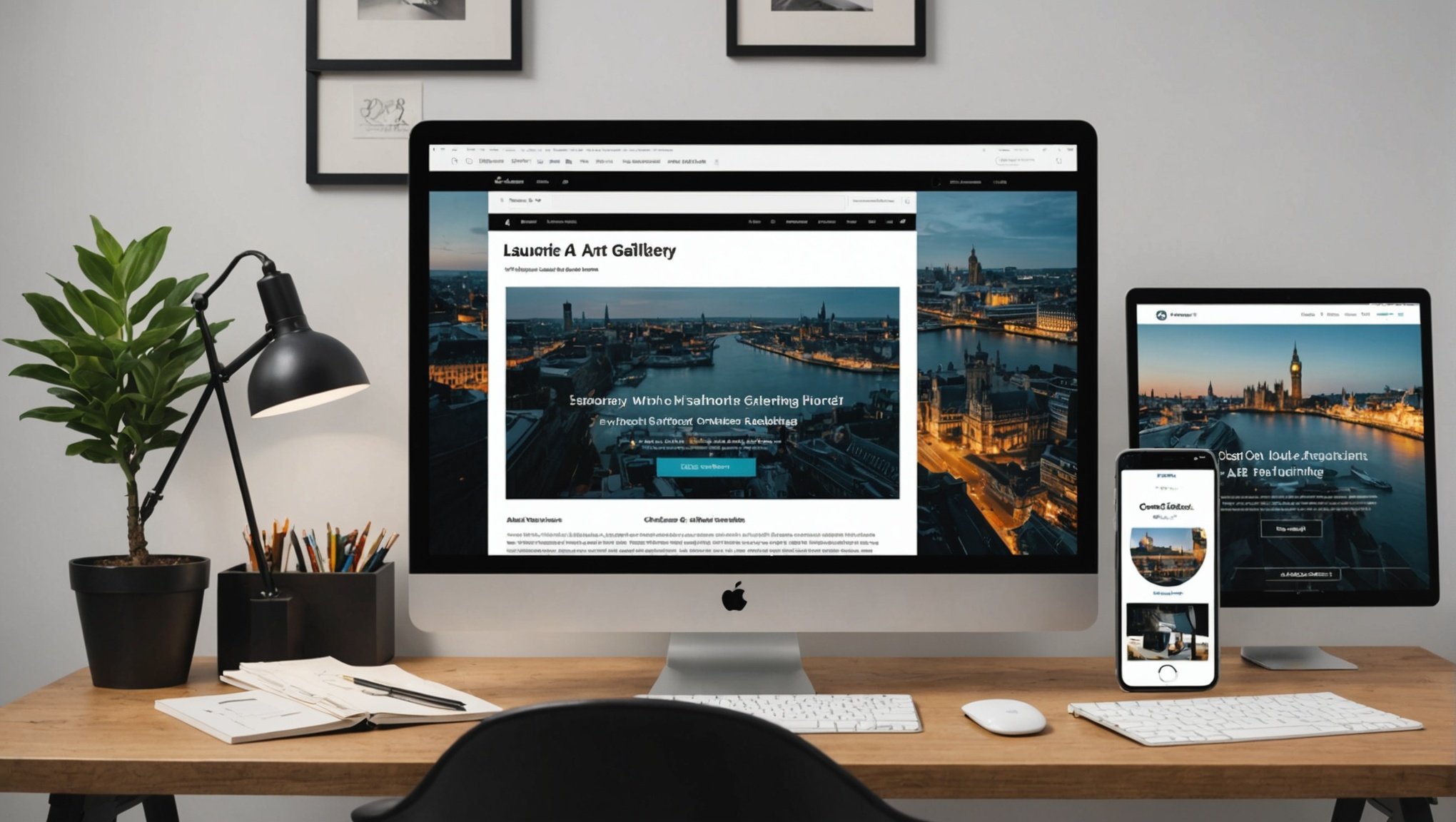Launching Your UK Online Art Gallery: A Guide to Navigating Digital Copyright Regulations
Understanding Copyright Law for Your Online Art Gallery
When venturing into the world of online art galleries, one of the most critical aspects to grasp is copyright law. In the UK, copyright law is governed by a set of rules that protect the intellectual property rights of artists and creators. Here’s what you need to know:
What is Copyright?
Copyright is the legal right that grants the creator of an original work the exclusive right to reproduce, distribute, and display the work, as well as create derivative works. This protection extends to various forms of creative works, including art, literature, music, and even digital content.
In parallel : Launching Your UK Electric Bike Rental Business: A Comprehensive Guide to Compliance with Road Safety Regulations
Fair Dealing and Quoting Images
UK copyright law allows for the concept of “fair dealing,” which permits the use of copyrighted material under certain conditions. For instance, if you are using an image for criticism, review, or quotation, and it is relevant to your discussion, you may be able to use it under fair dealing. However, you must ensure that your use does not impact the market for the original work and that you fully acknowledge the rights-holder.
Choosing the Right Images for Your Gallery
Selecting images for your online gallery involves more than just finding visually appealing pieces. You need to ensure that you have the necessary permissions or licences to use these images.
In parallel : Essential Financial Management Tactics for UK Tech Startups: A Comprehensive Guide
Creative Commons Licences
Creative Commons licences are a great way to find images that you can legally use. These licences provide a standardized way for creators to grant permissions for their work. Here are some common Creative Commons licences:
- CC0: This licence places the work in the public domain, meaning no attribution is required.
- CC BY: This licence allows for free reuse with attribution and indication if changes were made.
- CC BY-NC: This licence allows for free reuse in a non-commercial context, with attribution and indication if changes were made.
Using Google Images and Other Resources
Google Images Advanced Search allows you to filter results by usage rights, similar to Creative Commons categories. However, it’s crucial to check the terms of use at the source, as Google does not guarantee the reliability of these results.
Setting Up Your Online Gallery: Legal Considerations
Building an online art gallery involves several legal considerations to ensure you are complying with copyright regulations and protecting your own intellectual property.
Building Your Ecommerce Store
When setting up your ecommerce store, you need to include several critical pages that customers expect to see. These include a homepage, contact page, About page, collection pages, and product pages. Additionally, consider including terms and conditions, FAQ, privacy policy, and shipping policy pages to cover all legal bases.
Licensing Your Art
If you plan to license your art, it’s essential to understand the terms and conditions of licensing agreements. Licensing allows other parties to use your work in exchange for a fee, but you must ensure that the agreement protects your rights and interests.
### Key Pages for Your Ecommerce Store
- **Homepage**: The main entry point for your website.
- **Contact Page**: For customers to get in touch with you.
- **About Page**: To share your story and build a connection with your audience.
- **Collection Pages**: To showcase different categories of your art.
- **Product Pages**: Detailed pages for each artwork.
- **Terms and Conditions**: Outlining the rules and guidelines for using your site.
- **FAQ**: Frequently Asked Questions to address common queries.
- **Privacy Policy**: Detailing how you handle customer data.
- **Shipping Policy**: Explaining how you handle shipping and delivery.
Protecting Your Own Work
As an artist, protecting your own work is just as important as respecting the rights of others.
Registering Your Copyright
While copyright is automatic in the UK, registering your work can provide additional proof of ownership. This can be particularly useful in case of disputes.
Using Copyright Notices
Including a copyright notice on your website and on individual artworks can serve as a deterrent to potential infringers. A typical copyright notice includes the year of creation, your name, and the copyright symbol (©).
Managing Data Protection and Privacy
In the digital age, data protection is a critical aspect of any online business.
GDPR and Data Protection
The General Data Protection Regulation (GDPR) sets out strict rules for how businesses handle personal data. Ensure that your website complies with GDPR by having a clear privacy policy, obtaining consent for data collection, and securing data properly.
Collecting and Using Customer Data
When collecting customer data, be transparent about what data you are collecting and how it will be used. This includes information such as email addresses, payment details, and browsing history. Always provide an option for customers to opt-out of data collection and ensure that their data is protected.
Leveraging Social Media and Digital Signage
Social media and digital signage can be powerful tools to enhance your online art gallery and engage with your audience.
Social Media Integration
Use social media platforms to showcase your art, engage with your audience, and drive traffic to your website. Platforms like Instagram and Facebook allow you to share high-quality images and videos of your artwork. You can also use social media to share behind-the-scenes content, artist interviews, and upcoming events.
Digital Signage in Galleries
For physical exhibitions, digital signage can transform the visitor experience. It can provide interactive displays, real-time information, and additional media such as audio descriptions or translations. This not only enhances visitor engagement but also increases accessibility for a broader audience.
Practical Advice for Artists
Here are some practical tips for artists looking to sell their work online while navigating copyright regulations:
Work with Gallerists and Curators
Collaborating with gallerists and curators can help you value and price your art correctly. They can also provide valuable advice on how to market and sell your work.
Use Print-on-Demand Services
Print-on-demand services like Printful or Printify can help you sell your artwork as digital prints and merchandise without the need for upfront inventory costs. These services integrate with your ecommerce store, making it easy to manage orders and fulfillments.
Seek Legal Advice
If you are unsure about any aspect of copyright law or licensing agreements, it is always best to seek advice from a legal professional. This can help you avoid potential legal issues and ensure that your business is compliant with all relevant regulations.
Launching an online art gallery in the UK requires a thorough understanding of digital copyright regulations. By respecting the rights of other creators, protecting your own work, and complying with data protection laws, you can build a successful and legally sound business.
### Summary of Key Points
- **Understand Copyright Law**: Know the basics of UK copyright law and fair dealing.
- **Choose the Right Images**: Use Creative Commons licences and ensure you have the necessary permissions.
- **Set Up Your Ecommerce Store**: Include critical pages and comply with legal requirements.
- **Protect Your Own Work**: Register your copyright and use copyright notices.
- **Manage Data Protection**: Comply with GDPR and be transparent about data collection.
- **Leverage Social Media and Digital Signage**: Use these tools to engage with your audience and enhance the visitor experience.
- **Seek Legal Advice**: Consult with legal professionals if you are unsure about any aspect of copyright law.
By following these guidelines, you can navigate the complex world of digital copyright regulations and build a successful online art gallery.
Additional Resources
For further guidance, here are some additional resources that can help you navigate the legal and practical aspects of running an online art gallery:
- UK Intellectual Property Office: Provides general advice on reproducing digital images and photographs, and protecting your own images.
- Arts Council England: Offers resources and funding opportunities for artists, including guidance on digital culture and data protection.
- Creative Commons: A comprehensive guide to Creative Commons licences and how to use them.
By leveraging these resources and following the practical advice outlined above, you can ensure that your online art gallery is both successful and legally compliant.











